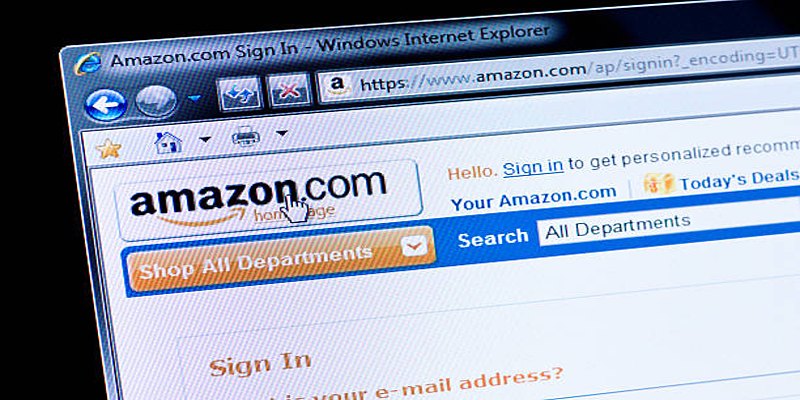Struggling to manage receipts, invoices, and spreadsheets while running your Amazon business? You're not alone. Many sellers face the big question: is DIY bookkeeping with tools like QuickBooks the best option? This blog covers everything you need to know about using QuickBooks as an Amazon seller, including the basics, benefits, challenges, and whether it’s the right fit for your e-commerce finances.
Why Bookkeeping Matters for Amazon Sellers

Bookkeeping is the backbone of any successful Amazon business. Without proper financial records, it’s nearly impossible to gauge your business performance, track expenses, prepare for taxes, or make data-driven decisions. For Amazon sellers, this process also comes with additional complexities like sales tax handling, platform fees, and inventory management costs.
Failing to maintain accurate financial records can not only hurt your cash flow but also lead to possible compliance issues. This is why systems like QuickBooks have become a favorite tool among many Amazon sellers.
What is QuickBooks and How Does it Help Amazon Sellers?
QuickBooks is an accounting software solution designed for small businesses. It offers tools to manage your income, expenses, and financial transactions, all in one place.
For Amazon sellers, QuickBooks provides features tailored for e-commerce, including:
- Expense Tracking: Automatically categorizes expenses like shipping fees, advertising, and sourcing costs.
- Sales Tracking: Keeps a detailed record of sales data imported directly from Amazon.
- Tax Preparation: Helps calculate sales tax based on customer location and simplifies tax filing.
- Profit and Loss Reports: Offers insights into your overall profitability.
- Integration: Syncs effortlessly with Amazon and other tools like PayPal and Shopify.
QuickBooks is excellent for keeping your books organized, but the real question is whether you should handle it yourself.
Understanding DIY Bookkeeping for Amazon Sellers
"DIY bookkeeping" refers to managing your business’s financial books without the help of an external accountant or bookkeeping service. Many Amazon sellers opt to do their books themselves, especially when starting out. But before you jump in, it’s essential to understand what DIY bookkeeping entails. Here's what you'll need to do:
Key Tasks in DIY Bookkeeping:
- Track Income and Expenses: Keep tabs on every dollar coming in or out. This means recording sales revenue, Amazon fees, shipping costs, and ad spend.
- Reconcile Bank Statements: Verify that your QuickBooks records match your Amazon payouts and bank account deposits.
- Monitor Inventory Costs: Track the cost of goods sold (COGS) to calculate profitability. Tools like QuickBooks allow you to integrate inventory management software for streamlined tracking.
- Prepare for Tax Filing: Many Amazon sellers face questions about sales tax collections across multiple states. QuickBooks can help automate this process, but it still requires a good understanding of tax rules.
DIY bookkeeping can certainly save you money in the short term but may also consume hours of your time each week. Is that trade-off worth it? It depends.
The Pros and Cons of DIY Bookkeeping with QuickBooks
The Benefits of DIY Bookkeeping
- Cost Savings: You won’t have to pay for a professional bookkeeper or accountant, though QuickBooks may still require a subscription fee.
- Deeper Financial Understanding: Managing your own books forces you to become familiar with your financial metrics, which can lead to better decision-making.
- Flexibility and Control: You can log financial data and make adjustments on your own schedule, without having to rely on external deadlines.
The Drawbacks of DIY Bookkeeping
- Time Consuming: If you’re juggling product research, supplier negotiations, and customer service, bookkeeping can quickly eat into your productivity.
- Steep Learning Curve: QuickBooks is powerful, but it comes with its own technical learning curve. Mistakes in setup or data entry could cause trouble at tax time.
- Limited Expertise: Unless you’re a trained accountant, you may miss opportunities to optimize deductions or handle more complex scenarios.
Many DIY bookkeepers start to feel overwhelmed as their business grows. This is when some sellers begin outsourcing.
Some Challenges Unique to Amazon Sellers
Amazon isn’t like other platforms, which brings in added complexity to bookkeeping. Here are a few challenges:
- Fee Tracking: Amazon charges sellers a range of fees, from referral fees to storage fees. QuickBooks can help track these, but they must be recorded correctly to avoid inaccuracies.
- Sales Tax Compliance: Handling sales tax in multiple states or countries often confuses sellers. While QuickBooks offers tax-tracking features, you’ll still need to verify everything thoroughly.
- Multi-Channel Sales Integration: If you also sell through your own website or other marketplaces, you’ll need proper integrations to make your bookkeeping smooth and accurate.
Considering complexities like these, some sellers find that DIY bookkeeping works better initially, while others choose to involve professionals sooner.
Should You Choose DIY Bookkeeping or Outsourcing?
The right choice depends on the size of your business and your comfort level with financial management tools. Here's a guide to help you decide:
DIY Bookkeeping is a Great Fit If:
- You’re a small Amazon seller just starting out.
- You have minimal transactions and manageable fees.
- You’re willing to invest time in learning QuickBooks.
- You feel confident navigating financial terminology and concepts.
Outsourcing Might Be the Better Option If:
- Your business is growing quickly, and your transaction volume is escalating.
- You sell internationally or face complex tax obligations.
- You want to focus on scaling your business instead of managing numbers.
- You’re concerned about financial compliance or making accounting mistakes.
How to Get Started With QuickBooks as a DIY Bookkeeper

If you’ve decided that QuickBooks and DIY bookkeeping is the right choice for you, here are a few tips to help get you started:
- Choose the Right Plan: For Amazon sellers, QuickBooks Online (Essentials or Plus) is often the best option because of its flexibility and integrations.
- Connect Your Bank Accounts: This allows QuickBooks to automatically import transactions, saving you hours of manual work.
- Integrate with Amazon: Use QuickBooks Online’s integration plugins or third-party tools like A2X to sync your Amazon payouts and fees.
- Set Aside Time Weekly: Schedule time each week to reconcile transactions, categorize expenses, and review your revenue.
- Take Advantage of Resources: Leverage QuickBooks tutorials, help centers, and forums for guidance. There are even QuickBooks courses tailored to e-commerce sellers.
Conclusion
Bookkeeping is key to your success as an Amazon seller, and QuickBooks is a powerful tool to manage your finances. For small sellers, DIY bookkeeping can be cost-effective and educational, but it comes with challenges. If you value control and want to master your finances, QuickBooks is a great ally. However, if fees, taxes, and reconciliation feel overwhelming, professional bookkeeping services might be the smarter choice.












